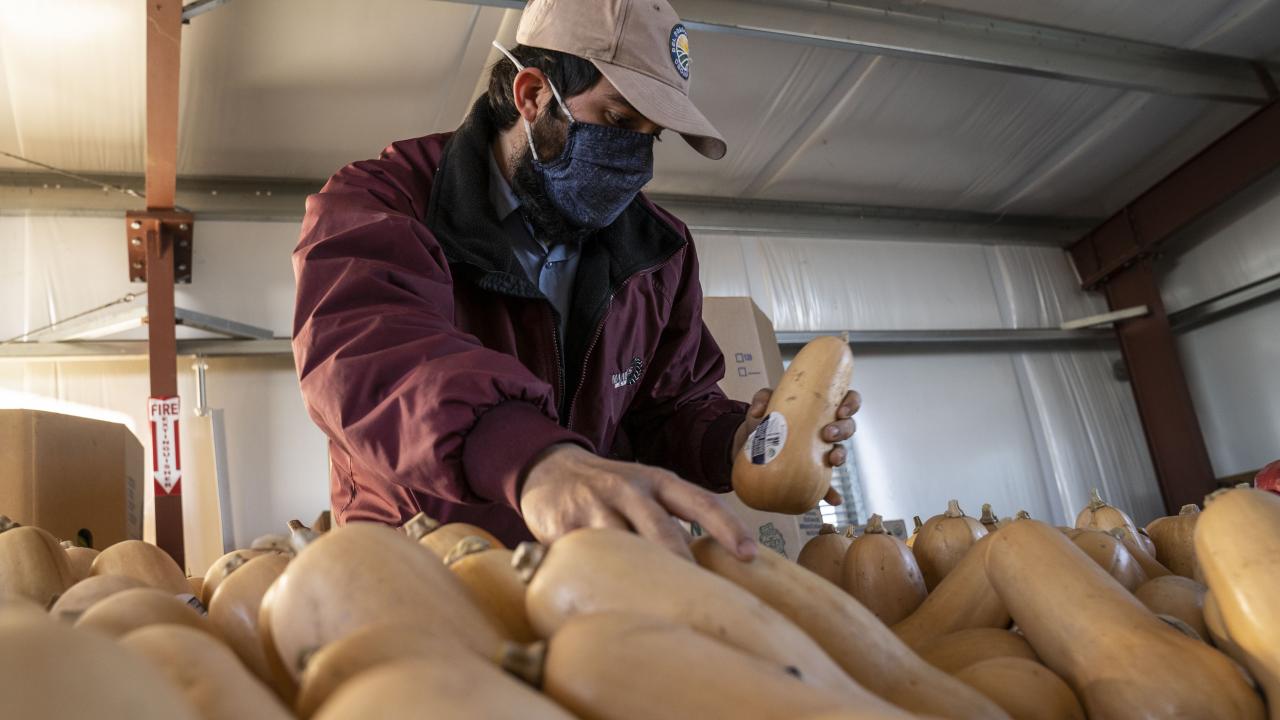California’s 800,000 farmworkers have been hit hard by COVID-19, the disease that has infected more than 25 million people and killed more than 420,000 in the United States. Farmworkers are especially vulnerable to the airborne virus that causes COVID-19 because they often live, work and carpool in close quarters with other people. As essential employees, farmworkers have stayed on the job during the pandemic to plant, process and harvest the nation’s food.
Agricultural safety experts and communicators at the University of California, Davis, have launched the COVID-19 Statewide Agriculture and Farmworker Education Program to reverse that trend. Funded by a $3 million contract with the California Labor and Workforce Development Agency, the project provides workers, growers, farm labor contractors, community groups and others the training and safety information they need to reduce farmworkers’ risk of contracting COVID-19.
The COVID-19 project is led by experts at the UC Davis Western Center for Agricultural Health and Safety, who are collaborating with the UC Davis College of Agricultural and Environmental Sciences Communications Team, a network of community-based organizations, and agricultural industry groups.
“Our team will work directly with community organizations who are trusted by farmworkers and have already been assisting them throughout this COVID crisis,” said Heather Riden, program director at the Western Center for Agricultural Health and Safety. “Our goal is to amplify their efforts and help them build capacity as they continue to provide critical COVID safety information to their communities.”
The team is also working closely with farmers and others in the agriculture industry as they navigate state COVID-19 workplace safety standards, establish protocols and provide employees the tools they need to stay safe on the job.
“As employers across the state implement that new COVID-19 Emergency Temporary Standards, we want to be a resource for them so they can take all the necessary steps to ensure a safe work environment,” said Riden.
The program will be especially active in areas of high agricultural employment, such as the Central Valley, the Imperial Valley, Napa Valley and fertile regions along California’s south and central coastlines.
Free trainings and other events are already underway. You can learn more and register for upcoming presentations on the UC Davis Western Center for Agricultural Health and Safety website. The center also offers extensive COVID resources and information in multiple languages on its COVID-19 Resources page.
Media Resources
Amy Quinton, UC Davis News and Media Relations, 530-601-8077, amquinton@ucdavis.edu
Diane Nelson, College of Agricultural and Environmental Sciences, 209-480-7445, denelson@ucdavis.edu
Heather Riden, UC Davis Western Center for Agricultural Health and Safety, heriden@ucdavis.edu
